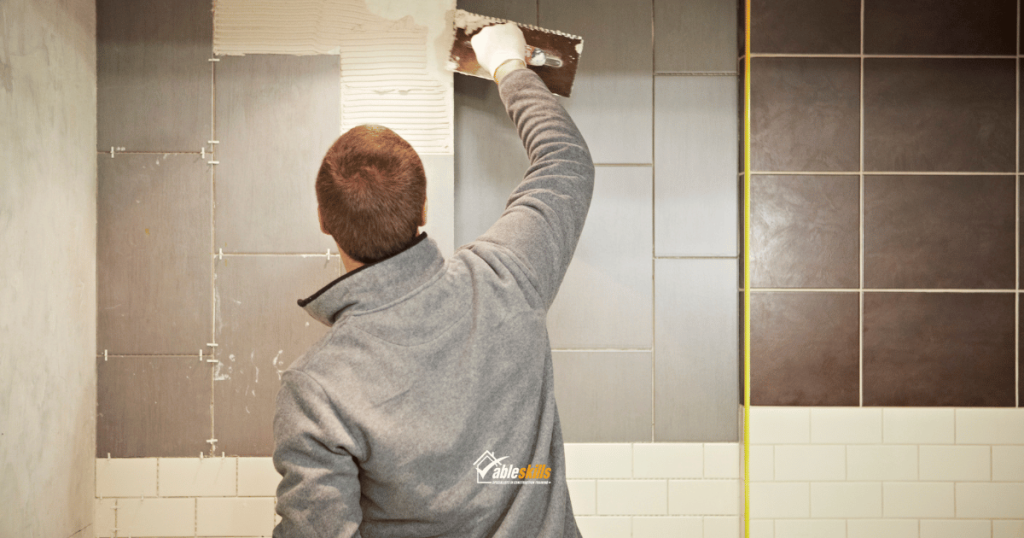
Learning how to complete your own tiling can be an extremely valuable skill to possess when it comes to home repairs and renovations.
Whether you’re replacing a chipped tile in your kitchen, or want to add a vibrant design to the floor of your entrance hall, there are a number of reasons why getting to grips with tiling is a worthwhile investment.
How much does a professional tiler cost?
According to Checkatrade, tiling costs for floors will average around £100 per m2, while the average cost of tiling an entire bathroom’s floor and walls will cost between £700-£800, a process that should take roughly 3-4 days, depending on the types of tiles used and the size of the bathroom.
These costs are averages and can vary significantly depending on a range of factors including the size of a room, the style and design and how simple it is for the tiler to complete the job, for example, will they be laying tiles on uneven or tight spaces?
Is it worth learning to complete your own tiling?
As always, one of the biggest appeals of learning a trade skill yourself is the money you can potentially save in the long term.
A five-day Introduction to Tiling course will teach you the core skills needed to tile your own floors and walls, and costs less than what you’d likely spend on a professional tiler to complete just a bathroom.
If you wanted to expand these skills and follow up your Introductory course with an advanced level of learning, then the combination of both would still cost roughly what you’d expect to spend on a professional to tile just a bathroom.
Along with saving money, being able to take on your own tiling projects means you’re able to complete work on your own schedule, rather than that of often busy professionals who regularly have a long waiting list.
What should you know about Health and Safety when tiling?
There are a number of safety risks to be wary of if you are completing your own tiling project, these include:
- Sharp power tools such as electrical saws
- Potential for asbestos fibres in floor tiles
- Inhalation of solvents, gases and other chemicals
- Working at heights
- Physical strain
- Electrical cables in the ground or walls
To ensure you’re working safely, always wear the correct PPE (knee pads, eye protection etc), check tools regularly, wear an approved mask and keep your work area tidy.
What have others said about learning to tile?
In one of our recent Student Success stories, we caught up with Sarah, who used one of our beginner tiling courses as a springboard for her own painting and decorating business.
Speaking about her time on the course, Sarah said: “I only completed the course a couple of weeks ago and since posting about my experience on social media and writing to companies I’ve already had offers of apprenticeships and work opportunities in tiling specifically.”
Read more from our students on our Testimonials page.
If you’re considering learning to tile for yourself, you can find more information on both our introductory and advanced courses online. You’re also welcome to visit us in the training centre any time we’re open for a chat, where our team would be happy to help.